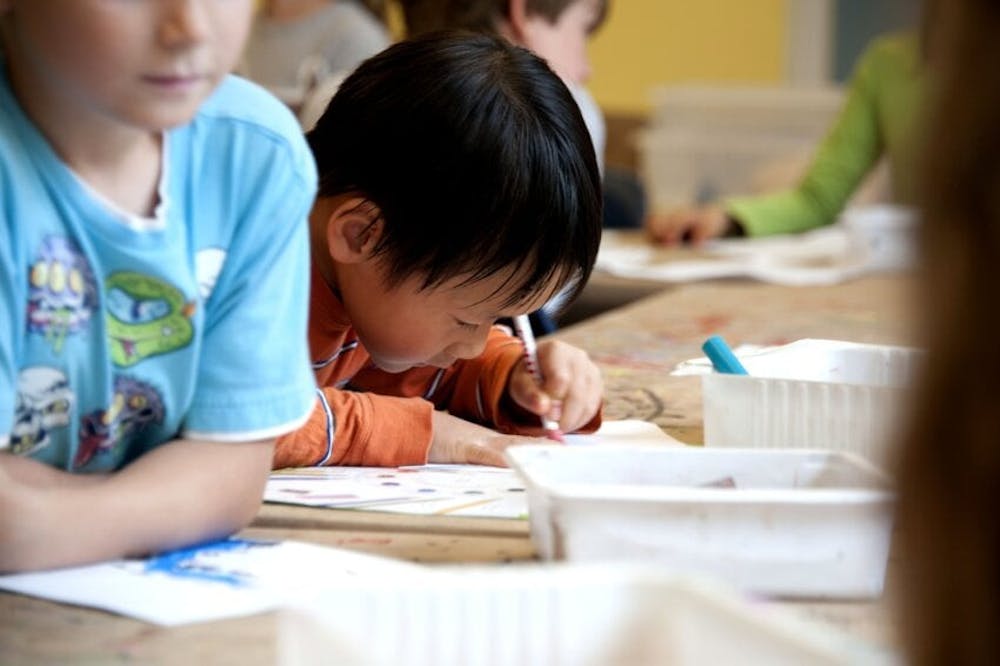As an Asian American student, I regularly hear my peers talk about the academic and career pressures they face at home and some of the resentment they feel toward how their parents raised them. I’ve come to think that the Asian parenting style has left us with more burdens than benefits, even though we did our best to fulfill our parents’ definition of success.
It does not escape me that the Asian style of parenting is its own topic while we rarely talk about parenting styles of other cultures. Asian American students are overrepresented at elite universities, and people have tried to point to parenting style as a possible reason.
In 2011, the term "Tiger Mom" entered the cultural lexicon, and, more recently, China’s "chicken blood," or jiwa, parents have garnered attention in Western media. These terms both describe a harsh parenting style that prioritizes a child's academic and extracurricular mastery over their social and emotional health.
Tiger parents use positive and negative parenting strategies to motivate their kids. It’s not always all demands, punishment and aggression. Some tiger parents may show support for their children by preparing a plate of cut-up fruit or by listening to their child’s feelings. However, that does not take away from the negative parenting techniques they use, which do not always have the intended effect.
Children of parents who are more supportive score higher in exams and maintain higher GPAs than children of tiger parents. Chicken blood parents can subscribe to various parenting styles. They are not necessarily tiger parents, but they fill their child’s schedule with activities that would put my own Hopkins life to shame.
While participation in extracurricular activities is beneficial to a child’s cognitive development, too much time and energy spent on these activities can prime kids for future depression and anxiety.
The supportive parenting style uses more positive strategies than negative ones. These types of parents are more likely to support their children through mistakes and set fair expectations. Their children typically have better academic results, but that is not the narrative that we see whenever Asian parenting styles are in the conversation.
Instead, Asian parenting styles are often compared to laid-back, permissive parenting styles. Permissive parents do not discipline their children when they are wrong or let them get away with too much freedom. As a result, their children often have worse academic performance, lack of impulse control and worse social skills.
Compared to permissive parenting styles, Asian parenting styles may seem necessary to propel kids to success. Anecdotally, it seems like they are right. Many of my peers at Hopkins share similar childhood stories. However, there are other factors to consider when looking at college acceptances. Many Asian American students come from immigrant families — which, as a whole, foster more academic values and grit than non-immigrant families.
Although immigrant families are at a disadvantage compared to their native counterparts, due to challenges such as language and cultural barriers, immigrant families tend to prioritize studies and community-driven activities since these are their avenues for acculturation. Parenting style is just one portion of the factors influencing a child’s drive to succeed.
Asian parents place a high value on the education and future success of their children. However, the methods they use to impart these values to their children may not always be effective. Children who grow up surrounded by American culture will have a harder time understanding the “authoritarian” parenting style of their first-generation immigrant parents compared to children who are first-generation immigrants themselves.
Some tiger cubs view their parents' harsh methods positively. They found the strict discipline of their childhood helpful in achieving their goals. For others, they reflect on the anxiety and loneliness of childhood and promise to raise their own children differently. The fact of the matter is, there are many parenting styles that can help children obtain good grades and prestigious academic degrees. The possible benefits of a tiger parenting style are not worth the negative emotional consequences later on in life.
For Hopkins students who grew up with tiger parents, they now have to choose between adhering to their parents’ high standards or choosing what makes them happy — even if it means they will not earn six figures or hold a job title worthy of a humble brag. We cannot change our childhoods, but as independent adults we can choose for ourselves what success means.
Rowan Liu is a senior from Chicago, Ill. studying International Studies.





